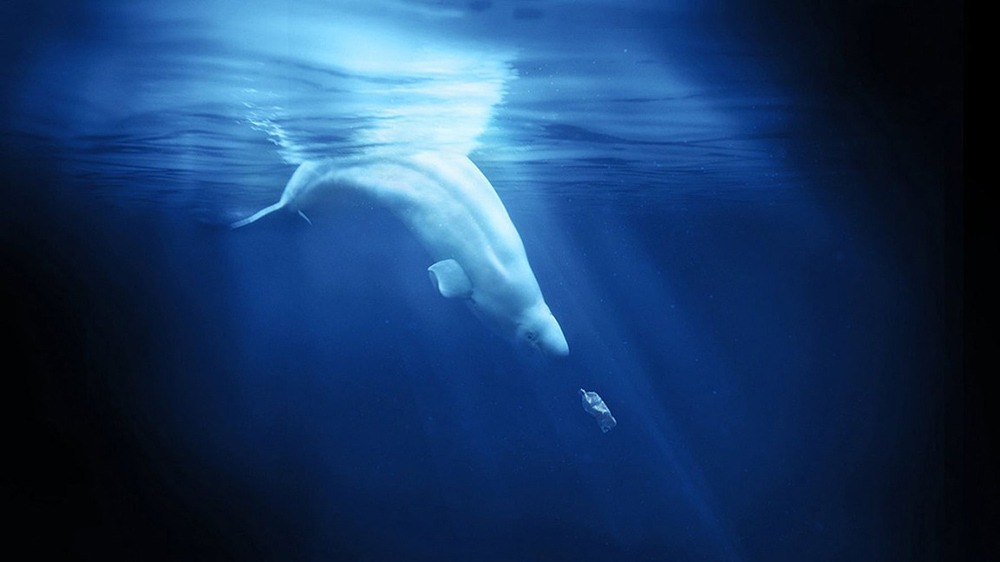A Plastic Ocean is an important documentary, exposing the devastating and wide reaching effects that mankind’s most prolific invention is having on the fragile eco-system of the oceans.
Four years ago Australian journalist Craig Leeson set out with an experienced documentary film crew to capture the elusive blue whale off the coast of Sri Lanka. His team were horrified to discover that this remote part of the ocean was no longer pristine crystal waters, but overrun with plastic waste. Leeson realised that there was a much more urgent story to cover, causing him to set about researching what impact our high level of plastic consumption is having on the ocean, and how this directly impacts the wildlife that call it home.
Plastic has been mass-produced since the 1950’s, but the last decade has seen a dramatic rise in the volume produced, now around hundreds of millions of tonnes annually. Unfortunately the majority of this plastic is used only once and then thrown away – only there is no ‘away’. A small portion of it is recycled and the majority ends up in a landfill, or as revealed in A Plastic Ocean, polluting our rivers and oceans.
Leeson, driven to expose this shocking issue, teamed up with free-diver and environmental activist, Tanya Streeter, to determine the full extent of the issue. They follow a two-pronged approach, firstly analysing the massive increase in the amount of plastic produced and then exposing the shocking way huge volumes end up polluting the most remote corners, and deepest depths of the world’s oceans.

Over a period of four years, Leeson and Streeter travel to 20 different locations across the world to meet international scientists and researchers, who are studying a wide range of issues created by the indestructible nature of plastic. They expose the devastating repercussions that poor waste management in one country has on the other side of the world. Scientists estimate that more than 5 trillion pieces of plastic are currently floating in our oceans, causing unknown amounts to end up in the stomachs of marine animals and sea birds, slowly and painfully killing them. More disturbing is that fish and seafood ingest smaller ‘microplastics’, which contain toxins that become stored in their tissues, contaminating the seafood that we consume. With a fifth of the world’s population relying on the ocean for the their primary source of protein, we are literally poisoning ourselves with our reliance love of plastic.
The film presents beautiful shots of the marine environment, in stark contrast with the heavily populated cities and huge dumps of plastic rubbish that overflow into it. We are frequently told about the shocking amount of plastics that have been produced since the start of the film, as we’re shown the impact that it directly has on numerous marine animals and sea birds. The assortment of stories and interviews with experts expose the true level of pollution and wide-reaching effects, which left unchecked, will have a massive and irreversible impact on the entire world.

By trying to capture the wide reaching effects of the issue, the film does at times suffer from feeling disjointed as we leap from one part of the world to another, with our host regularly changing. There is a wealth of scientific information being relayed to us with text boards to explain the terminology used extensively by scientists, which is effectively done.
A Plastic Ocean is a sobering tale, and given the continued growth in the world’s population and the increased disposable lifestyle, the situation can feel very bleak. Thankfully, the filmmakers also explore solutions and strategies being adopted by other countries to reduce the impact of plastics to tackle this crisis. While the key message is the importance of avoidance and reduction in everyday use, the impact that we can make on an individual level is stressed as the means of orchestrating change.
This hard-hitting documentary is at times difficult viewing, but that only reinforces its importance and the responsibility each individual must take on their impact on our only planet.
A Plastic Ocean is currently streaming on Netflix.




COMMENTS